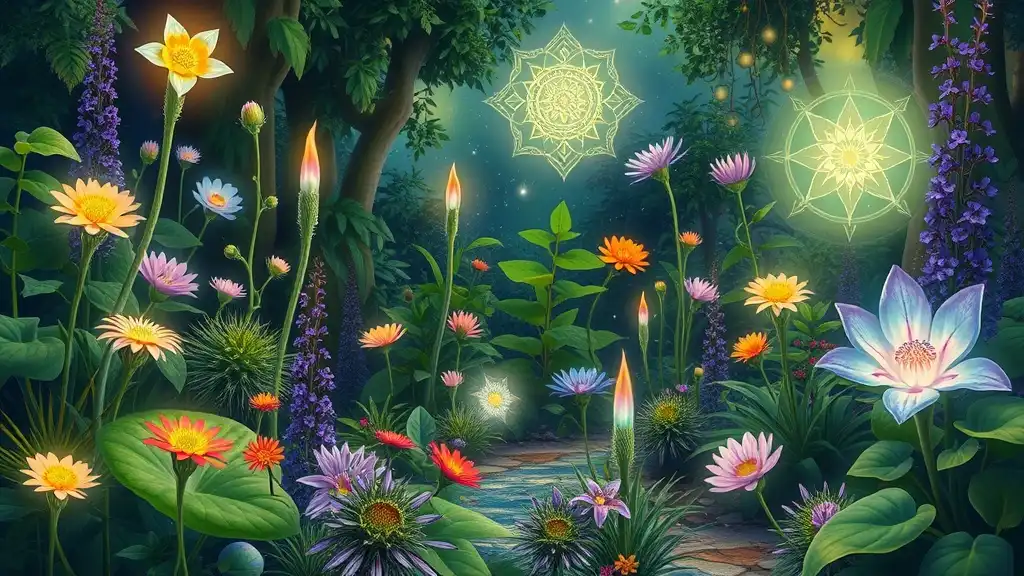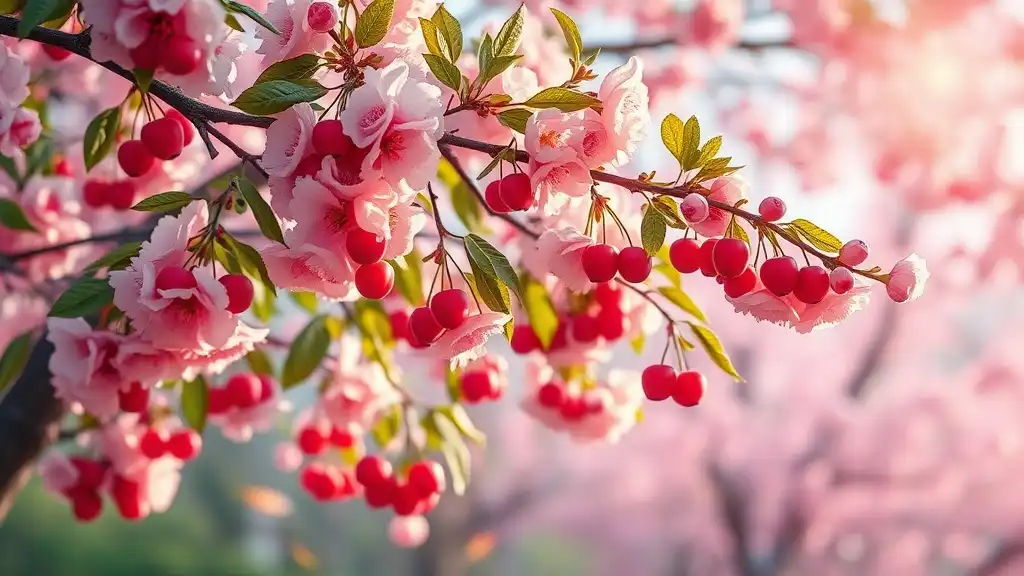Understanding the spiritual significance of herbs opens a pathway to deeper awareness and connection with the natural world. For centuries, various cultures have recognized herbs as powerful tools for spiritual growth, healing, and transformation. By delving into their rich traditions and properties, we can enhance our own spiritual practices and foster a profound relationship with these plant allies.
The Historical Context of Herbs in Spirituality
Ancient Civilizations and Herbal Traditions
Herbs have played a vital role in the spiritual practices of ancient civilizations. In Ancient Egypt, for example, plants such as frankincense and myrrh were used in rituals aimed at connecting with the divine and were integral to the practices surrounding death and rebirth. These aromatic resins were burned as offerings to the gods and were believed to carry prayers to the heavens.
Indigenous cultures across the globe also embraced herbal wisdom, often intertwining it with their systems of spirituality. Herbs were not merely tools for healing physical ailments; they held sacred meanings and were believed to contain spiritual energies that could guide and protect individuals. For instance, Native American tribes used sage for purification, while cedar was burned to ward off negativity and attract positive spirits.
Eastern philosophies, particularly those from traditional Chinese medicine and Ayurveda, emphasize the role of herbs in spiritual balance. They are viewed as manifestations of natural energies that can enhance harmony within the body and spirit, encouraging a holistic approach to health and wellness.
The Renewed Interest in Herbal Spirituality
In recent years, there has been a significant resurgence in the interest in herbalism, particularly within wellness communities. As people become more aware of the impacts of synthetic substances on health, they increasingly turn to nature for remedies. This shift has inspired a rediscovery of herbal traditions, with powerful implications for personal spiritual journeys.
Many individuals now see herbalism not just as a set of tools for physical health, but as a vital spiritual practice. Integrating herbs into daily life offers opportunities for cultivating mindfulness, intention, and connection to the earth.

Understanding the Energetics of Herbs
The Connection Between Herbs and Energy
Every herb possesses a unique energy frequency that can resonate with our own vibrational state. The connection between herbs and energy goes beyond their physical properties; it encompasses their spiritual dimensions as well. For example, the scent of a herb can influence emotional states—lavender’s soothing aroma allows for calmness and relaxation, while peppermint’s invigorating scent can enhance clarity and focus.
It's essential to recognize that herbs are not just botanical elements; they are living beings that vibrate with specific energies that can guide us spiritually. By becoming attuned to these energies, we can integrate herbs into our spiritual practices meaningfully.
Commonly Used Herbs and Their Spiritual Properties
Lavender
Lavender is renowned for its calming energy and purification properties. Used in meditation, it helps quiet the mind, allowing for deeper connection and insight. Its gentle floral scent enhances sleep, promoting spiritual dreams and clarity during the dream state. When incorporated into rituals or used alongside candles, lavender can act as a powerful ally in creating sacred space.
Sage
Sage holds a prominent place in various spiritual rituals for its cleansing and protective qualities. The act of smudging, or burning sage, serves as a purification ritual, clearing negative energy from spaces and individuals. It creates an open environment for spiritual practice, making it a staple in many ceremonies aimed at spiritual enhancing and protection.
Rosemary
The herb rosemary is deeply tied to memory enhancement and clarity—two vital components of spiritual development. It is often used during intention-setting practices, where the aroma helps to focus thoughts on one's goals and aspirations. Its association with remembrance makes rosemary an important ally in honoring ancestors and loved ones during spiritual rituals.
Basil
In many cultures, basil is linked to love and prosperity. The herb is frequently utilized in rituals designed to attract love—whether romantic or platonic. When placed in spaces or used in baths, it can foster an atmosphere of abundance and connection, aligning spiritual energies with desires.
Herbs for Different Spiritual Purposes
Healing and Protection
Herbs such as garlic and marigold have been acknowledged for their protective qualities. Garlic, often thought of as a physical health booster, is believed to ward off negative energies as well. Marigold, on the other hand, has various uses, from enhancing protection rituals to promoting joyful energies during celebrations.
Love and Relationship Enhancement
Herbs like rose and hibiscus are coveted for their love-attracting properties. Rose, in particular, is revered for its connection to the heart and unconditional love, making it a powerful tool for heart-centered rituals. When using these herbs, consider creating a dedicated love spell or ritual to concentrate your intentions on fostering relationships aligned with love and compassion.

Incorporating Herbs into Spiritual Practices
Herbal Rituals and Ceremonies
Creating an herbal altar can be a profoundly personal experience. Select herbs that resonate with your spiritual intentions, and arrange them in a way that reflects your journey. Incorporate representation from nature—such as stones or flowers—to create a visually and energetically harmonious space. Using these herbs in rituals, whether as offerings or focal points in meditation, can enhance spiritual practices significantly.
Herbal Meditation and Mindfulness
Utilizing herbs during meditation can deepen your experience. Consider preparing herbal offerings, such as teas or infused oils, to incorporate into your practice. As you meditate, visualize the energy of the herbs enhancing your connection to the universe and your own inner wisdom. Allow their essences to guide your awareness, leading to profound insights and clarity.
Crafting Herbal Amulets and Charms
Crafting amulets or charms with herbs can be a meaningful way to carry their energies with you. Choose herbs that align with your intentions—whether for protection, love, or abundance—and bind them in small cloth pouches. Personalize these amulets further by including crystals or other sacred items. Carrying these charms can serve as a constant reminder of your spiritual and personal goals.

The Ethical Considerations of Using Herbs
Sourcing and Sustainability
In embracing herbal spirituality, it is crucial to consider how herbs are sourced. Opt for ethical and sustainable practices that respect both the environment and the cultures from which these herbs originate. Supporting local and organic farmers is a gift not only to the planet but also to the preservation of herbal wisdom.
Cultural Appropriation vs. Cultural Appreciation
Engaging with the spiritual practices surrounding herbs requires a delicate balance. It is vital to understand the significance of these plants in their original cultural contexts. When incorporating herbs into your spiritual life, approach with humility, respect, and a desire to learn, making sure to avoid appropriating sacred traditions for personal gain.

Conclusion
The spiritual significance of herbs is a rich tapestry of ancient wisdom interwoven with modern practices. By embracing their energies and incorporating them into daily rituals, we create pathways to deeper spiritual connection and growth. Explore the myriad possibilities within your spiritual journey, and let the wisdom of herbs guide you toward transformation and enlightenment. As you develop your understanding and relationship with these natural allies, you may discover profound revelations and a sense of belonging within the broader tapestry of life.



















